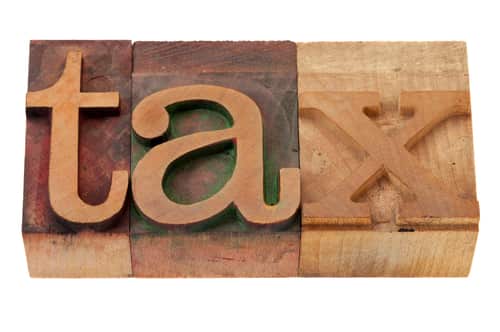- Hotline+971 50 27 28 29 1
- for Individual offices click here


STA Law Firm has a team of settlement experts to represent secured creditors, debtors, trustees, equity holders and suppliers....
Read more information
Corporate Law Firm in UAE-& across MENA. Corporate Lawyers in Dubai...
Read more information
STA Law firm has a dedicated team of franchise lawyers who advises and counsels the franchise arrangements, structuring franchise programs, franchise network and distribution. ...
Read more information
STA - Expert Team of Commercial & Contracts Lawyers in Dubai & UAE...
Read more information
STA Law Firm is one of the leading law firm in Banking and Finance, Capital Markets, DIFC, Compliance and Regulatory practices. ...
Read more information
Contact our expert team of property lawyers in Dubai & across UAE....
Read more information
STA Law Firm's team of employment lawyers in Dubai, Abu Dhabi and across UAE advise universities, engineering & shipping firms, banks, & other industries...
Read more information
Intellectual Property Law Firm. Patent, Trademark Registration UAE...
Read more information
Technology & Media Law Firm in Dubai - Expert Lawyers...
Read more information
STA has a dedicated team of fraud & criminal lawyers in Dubai & UAE...
Read more information
Shipping Law Firm in Dubai | Offices - Middle East, Asia & Europe....
Read more information
Mergers and Acquisitions Law Firm in Dubai and United Arab Emirates...
Read more information
In today’s competitive business environment the mining industry is becoming a very attractive option for foreign investors. New projects are being launched, but we can appreciate that foreign investors will find the mining industry......
Read more information
STA lawyers recognize that the healthcare industry comprises of a variety of individuals, professions, teams and organisations that may need our legal services. We have considerable knowledge and experience......
Read more information
Clients rely on and trust STA's banking lawyers to take a timely, practical and individually tailored approach to meet specific requirements of our clients. ...
Read more information
Insurance Practice at STA - Expert Insurance Lawyers in Dubai & UAE...
Read more information
STA is a leading technology and media law firm in Dubai & across UAE...
Read more information
Hospitality Lawyers in UAE - Expert Advice to Hospitality Industry...
Read more information
STA’s seasoned team of property lawyers in Dubai, Abu Dhabi and across the UAE have thorough and extensive knowledge and experience in dealing with construction and real estate law matters. Learn more about our expertise and our team of property lawyers...
Read more information
STA's lawyers in UAE specialize in all areas of contentious as well as non-contentious discipline in oil and gas industry and advice on both upstream and downstream work. Consult one of our Senior Energy Lawyers in Dubai or other offices today!...
Read more information
Combining variety of practice disciplines to provide extensive advice and counsel to clients, STA’s FMCG practice represents companies in a broad range of industries including large scale franchisors, Fortune 250, and multinationals ...
Read more information
Shipping and Maritime Law Firm - UAE, Middle East, Asia and Europe. Expert advice on ship building, ship fiance, sale and purchase, compliance, due diligence and more. Our lawyers advice on all types of vessel including bulk carriers, tankers, cruise ships, offshore rigs and support vessels....
Read more informationSTA's Team of Lawyers in Abu Dhabi, Bahrain, Doha, UAE, Luxembourg, Moscow, RAK, Sharjah, and Singapore. Find a Lawyer. ..
Read more informationThe Upper House of Parliament in India has Approved a Measure to Abolish Retroactive Taxes
 The Rajya Sabha, India's upper house, adopted The Taxation Laws Amendment Bill on Monday, which aims to eliminate all retrospective taxation on indirect asset transfers in India. The tax bill's goal is to overturn the effects of modifications made by the Finance Act of 2012, which attempted to impose tax responsibility on gains deriving from the indirect transfer of assets domiciled in India retrospectively.
The Rajya Sabha, India's upper house, adopted The Taxation Laws Amendment Bill on Monday, which aims to eliminate all retrospective taxation on indirect asset transfers in India. The tax bill's goal is to overturn the effects of modifications made by the Finance Act of 2012, which attempted to impose tax responsibility on gains deriving from the indirect transfer of assets domiciled in India retrospectively.
According to Article 110 of the Indian Constitution, any bill dealing with the imposition, repeal, remission, change, or regulation of any tax is considered a money bill. As a result, while the tax measure meets the criteria of a money bill, Article 109 of the Constitution only allows the Rajya Sabha to adopt it with recommendations to the lower chamber.
Alternatively, Rajya Sabha has no jurisdiction to reject the tax bill, and the law would have been declared enacted by both houses of Parliament even if it had not been approved within the 14-day deadline. The Lok Sabha must now agree to and accept any Rajya Sabha suggestions on the tax bill, although it can pass the law without doing so. As a result, in situations concerning taxation or tax legislation, the Rajya Sabha has extremely limited authority.
The tax bill would modify the Income Tax Act to clarify that the Finance Act's impact will be prospective, invalidate certain limitations on indirect transfers of India-based assets made before May 28, 2012, and make other changes to the Finance Act.
 The Finance Act was an attempt to get around the precedent in the Vodafone case, which found that earnings deriving from the indirect transfer of assets in India were not taxable under the Income Tax Act's then-current provisions.
The Finance Act was an attempt to get around the precedent in the Vodafone case, which found that earnings deriving from the indirect transfer of assets in India were not taxable under the Income Tax Act's then-current provisions.
Conclusively, because of the retroactive clause in the Finance Act, the tax law would effectively eliminate any tax demands against corporations like Cairn Energy and Vodafone. The law is still awaiting Lok Sabha ratification, which may or may not adopt Rajya Sabha's recommendations.